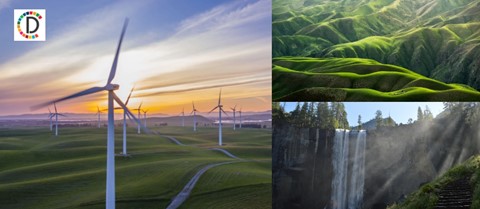Snowstorms flank US, with Northeast, California digging out

Heavy snow bookended the United States on Tuesday, with a late-season storm bringing a messy morning commute to the Northeast and California residents digging out, or in some cases simply stranded, after yet another storm.
While not a blockbuster storm by regional standards, the Northeast felt what could end up being the most significant snowfall of what has so far been a mild winter.
The brunt of the storm hit Boston as the Tuesday morning commute commenced.
A winter storm warning covered parts of the Northeast, including Connecticut, New York, Massachusetts, New Jersey and Rhode Island, with heavy snow forecast through Tuesday afternoon.
Most of the nation's flight cancellations or delays were concentrated in the Northeast early Tuesday.
There were about 450 flight cancellations in the US and over 500 delays, according to FlightAware.com.
Boston could get 5 inches (13 centimetres), according to the weather service. As much as 10 inches (25 centimetres) were forecast in western Massachusetts and parts of Connecticut and Vermont.
Dozens of school districts in Massachusetts closed or delayed opening, WCVB-TV reported.
Massachusetts Gov. Maura Healey directed all nonemergency state employees in the executive branch to stay home Tuesday, her office said.
By early Tuesday, parts of New York City saw an inch or so of snow — some of the first snow to stick to the ground this season.
The worst was over before sunrise, and a mix of snow and rain was expected Tuesday morning in the city, making for a slippery commute, NY1 reported.
At the other end of the country, California dug out yet again.
San Bernardino County, east of Los Angeles, declared a state of emergency amid the latest snow event after many mountain residents were trapped in their homes over the weekend.
Heavy snow stranded hundreds of motorists at higher elevations, KTLA-TV reported.
Dozens of elementary school children were stranded at a science camp in Crestline for nearly a week, but buses escorted by the state highway patrol eventually evacuated them, the TV station reported.
The county fire department used "specialised snow vehicles" to reach people who need critical medical care.
The new series of storms arrived even as parts of California were still digging out from last week's powerful storm, which added to a massive snowpack left by a siege of "atmospheric rivers" in December and January.
A cold weather alert was declared for valley and mountain areas north of Los Angeles as overnight temperatures were expected to plunge below freezing for much of the week. Shelters were opened for residents without access to warmth.
While the mountainous areas around Los Angeles tried to dig out, rain fell on lower elevations of California, near the Pacific Coast. Storms were to continue moving through the state until the end of Wednesday. Blizzard warnings were in effect in the Sierra Nevada range in California and Nevada.
An avalanche warning was issued for the backcountry around Lake Tahoe, where up to 6 feet (1.8 metres) of snow was expected over the next two days in the upper elevations and gale-force winds could create waves up to 5 feet (1.5 metres) high on the lake, the National Weather Service said.
State offices across northern Nevada, and the Nevada Legislature in Carson City, shut down.
The northbound side of Interstate 5, the West Coast's major north-south highway, closed amid the weather and was littered with disabled vehicles about 90 miles (145 kilometres) south of the Oregon line. Interstate 80 was closed due to blizzard conditions.
(This story has not been edited by Devdiscourse staff and is auto-generated from a syndicated feed.)










